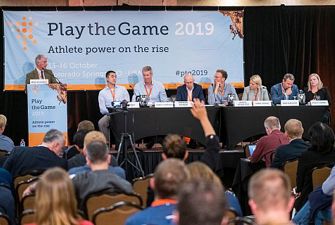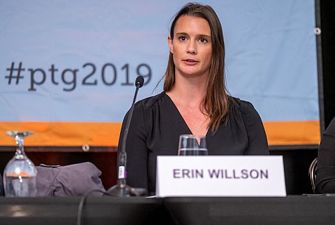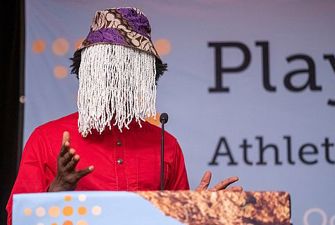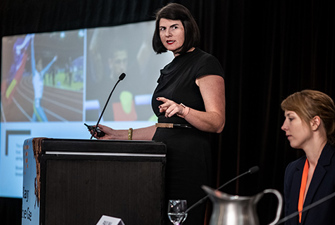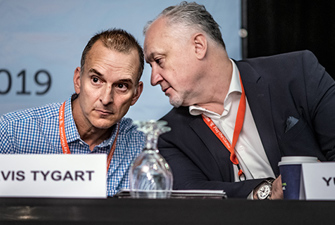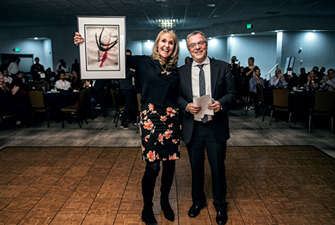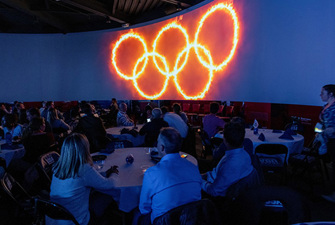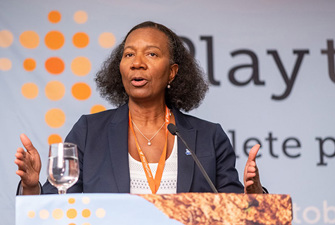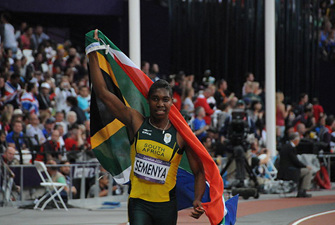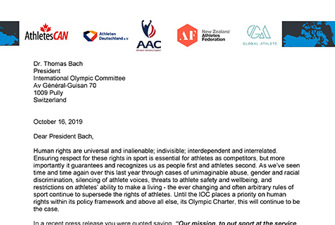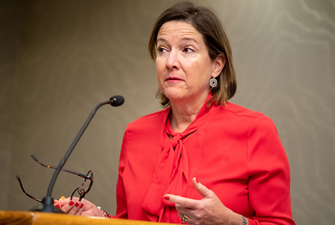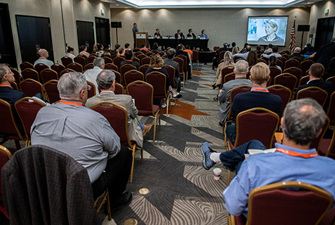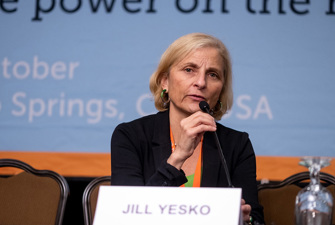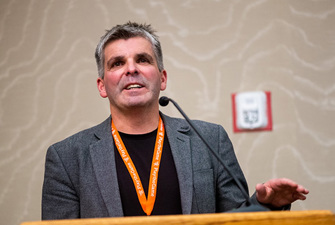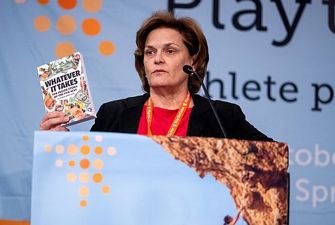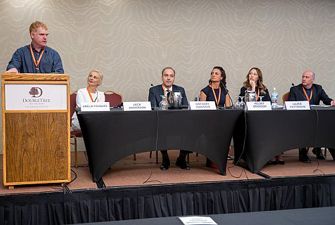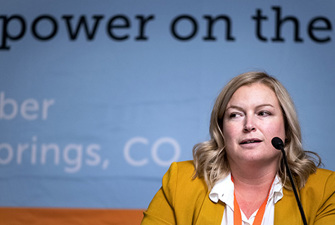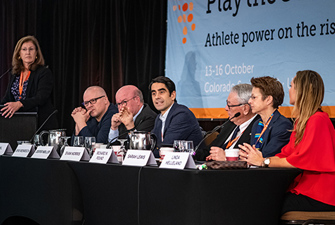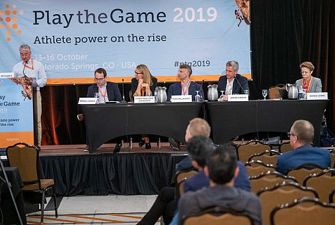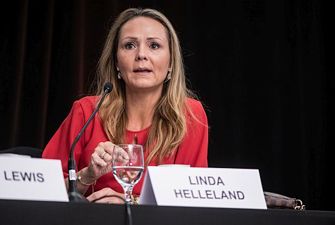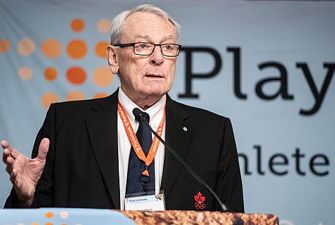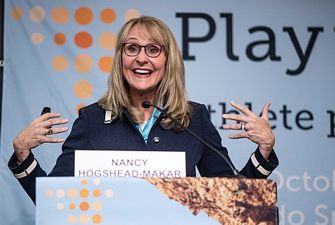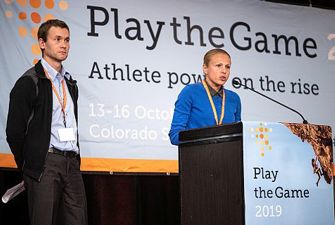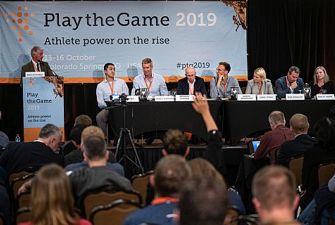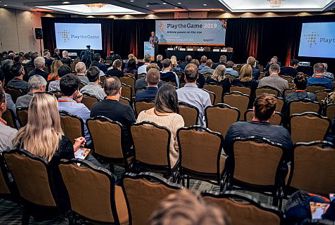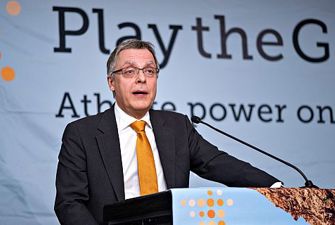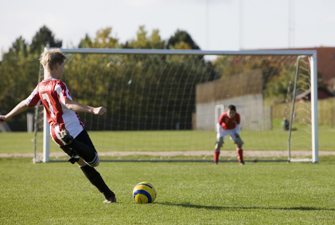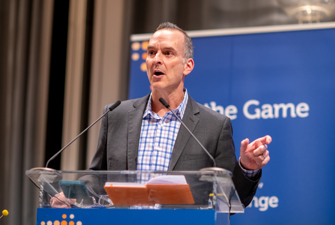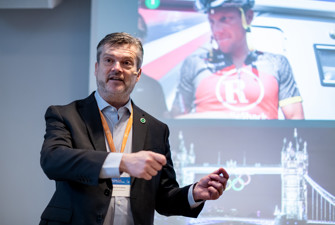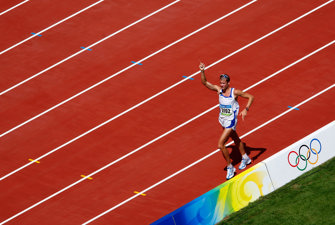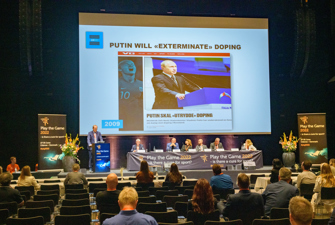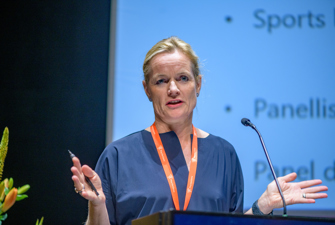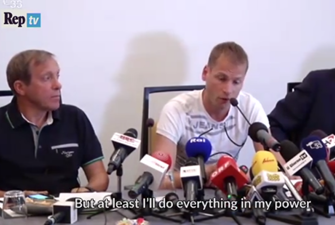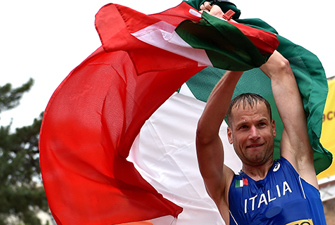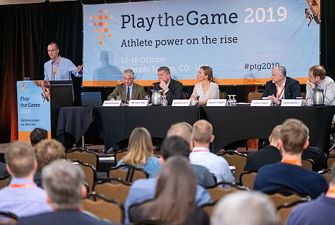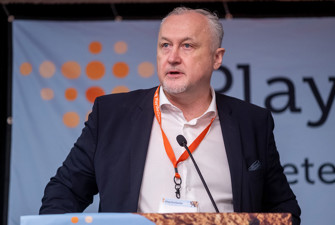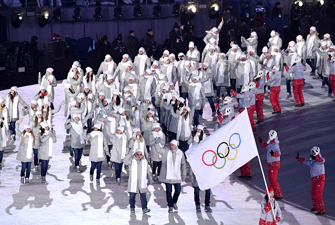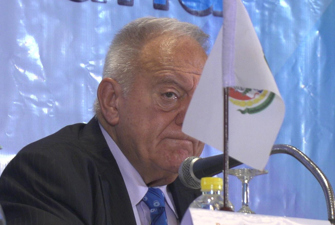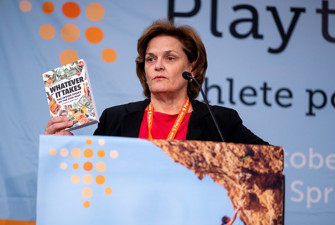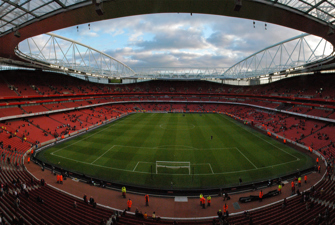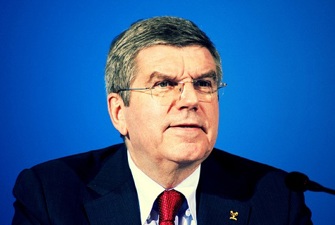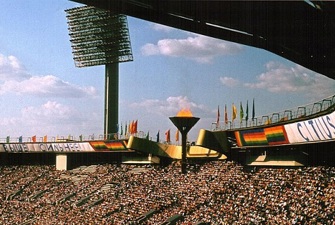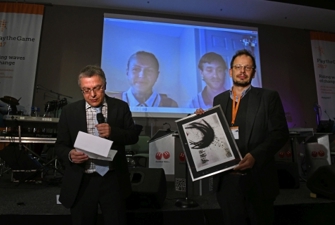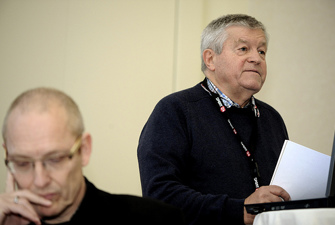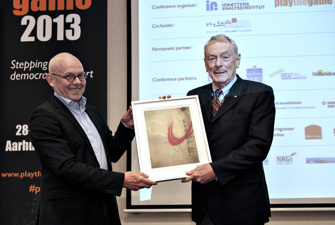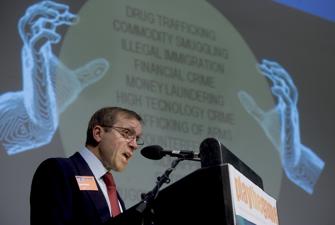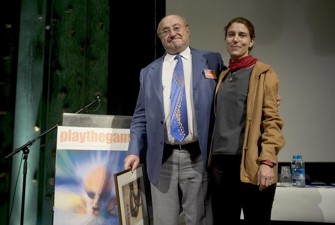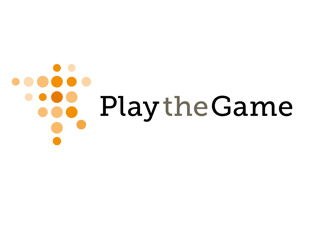What it means to blow the whistle
Oscar winning director Bryan Fogel addressed Play the Game 2019 with a specific question: Why don’t WADA and the IOC want to hear any more evidence from Russian super-whistleblower Grigory Rodchenkov?
Bryan Fogel won an Oscar for Icarus, his acclaimed documentary about doping-whistleblower Grigory Rodchenkov. His achievement, however, is bitter-sweet. Rodchenkov, who had become a close friend, is now forbidden from contacting Fogel and other former acquaintances. He remains in protective custody at an unknown location.
Describing the former Russian lab director as the “biggest whistleblower in the history of sport”, Fogel’s presentation at Play the Game was a damning indictment of the International Olympic Committee (IOC) and the World Anti-Doping Agency (WADA). According to Fogel, neither organisations have contacted Rodchenkov to offer assistance, request further information on Russia’s extensive doping programme, or to thank him for his whistleblowing actions.
Fogel had originally planned to make a very different documentary. The exposure of Lance Armstrong, one of his childhood heroes, made him ask how the seven times Tour de France winner had managed to beat the drug tests again and again. Armstrong wasn’t caught out by a doping test – he was ultimately convicted on the testimony of his former teammates. Fogel’s planned documentary would ask whether it is still possible to beat the system.
After a year of research, Fogel was advised to contact Rodchenkov, the then-Director of Russia's national anti-doping laboratory in Moscow. Explaining that he was making a documentary about the effectiveness of anti-doping systems, Fogel asked Rodchenkov if an Olympic medal could be won today without the use of performance enhancing drugs. The Russian answered in the negative.
Their contacts became more frequent and an unlikely friendship ensued. Rodchenkov agreed to assist with Fogel’s documentary by showing the filmmaker how he could dope and still pass doping tests. Over seven months, Fogel managed his own biological passport, and took frozen samples of his urine to Russia for analysis.
A game changer
The story took an unexpected twist in December 2015 after a documentary, aired by the German TV channel ARD, detailed Russia’s state-sponsored doping programme and exposed Rodchenkov as the architect. Accreditation for Rodchenkov’s lab was revoked by WADA and he was forced to resign. Fearing for his safety, Rodchenkov asked Fogel to book him a flight to Los Angeles immediately. Fogel had no idea what secrets the Russian would be bring with him on the plane.
Rodchenkov arrived in the U.S. carrying three hard drives containing extensive evidence of a systematic, state-sponsored doping programme and a test manipulation programme involving the replacement of urine samples. In confidence, Rodchenkov admitted to Fogel that he had helped orchestrate the single largest doping programme in the history of sport.
He admitted that he had helped hundreds, if not thousands of sportsmen cheat. Every Russian medallist at the 2014 Sochi Winter Olympics was doped, Rodchenkov said, and he had the evidence to back up his claims. “Being in possession of this evidence was scary,” Fogel said. “This was really, really serious.”
FBI agents came to visit Rodchenkov in California and served him with a subpoena to appear in New York as part of a U.S. Justice Department investigation into the Russian doping scandal. They knew Rodchenkov was a person of interest as he had featured prominently in WADA’s two-part McLaren report.
Both Fogel and Rodchenkov had little faith that the U.S. Department of Justice would see him as a whistleblower and not a criminal. According to Fogel’s account, they decided to pre-empt the investigation by going public, providing the New York Times with 250 page dossier containing evidence of the programme, which made front page news. “The Times story made Greg a whistleblower,” Fogel said.
Front page news
Although he avoided prosecution, Rodchenkov’s damning testimony resulted in him being taken into the Federal Witness Protection Program. He now lives in an undisclosed location. “Grig has had to pay a high price,” Fogel said “And neither WADA nor the IOC lifted a single finger to help him. Instead he lives in fear of his life. His lawyer needs to wear a blindfold when he visits. “
While Rodchenkov initially cooperated with investigators, Fogel said, the global anti-doping agency never followed up to request more information. “WADA doesn’t want to hear any more from Grigory Rochenkov,” he said. “This guy is sitting on a mountain of evidence that WADA has no interest in seeing. Why fight for clean sport if this is the result when someone comes forward?”
In a charged debate, WADA Confidential Information Manager, Damien Larin claimed that much has changed over the past eighteen months, and that Fogel is perhaps not up to date with developments since Rodchenkov entered witness protection. He declined to comment further on the Rodchenkov case due, he said, to the principle of whistleblower confidentiality.
Not all Play the Game attendees believed that Rochenkov was a wholly altruistic whistleblower. He only fled to the U.S. after the WADA closed down his lab, critics pointed out, and his actions have likely allowed thousands of drug cheats to prosper.
Two other Russian whistleblowers, Yuliya and Vitaly Stepanov, also gave very powerful panel statements. Yuliya, who came forward with her story before Rodchenkov’s flight from Russia, questioned why he only came forward after his role had been exposed. "For so many years he could have stopped it", Yuliya said. While she was under the tutelage of another doping enabler, Dr. Portugalov, she said, he and Rodchenkov would bet on whose doped athlete would win “as if we were horses”. Fogel countered that Rochenkov would have risked assassination had he come forward any sooner.
As a result of WADA’s investigations, Russia was partially banned from the 2016 Summer Olympics in Rio and banned from the 2018 Winter Olympics in PyeongChang. In February 2018, the nation’s ban from Olympic competition was lifted, and in September of that year its anti doping agency was reinstated. Russia has never accepted that a state-sponsored doping programme existed.
